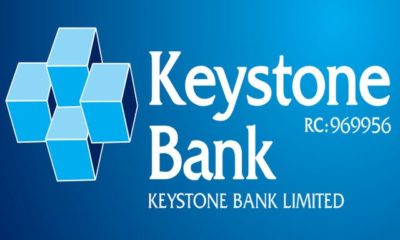The latest appointment by the U.S. Export-Import Bank of its Sub-Saharan Advisory Committee for 2020 and 2021 confirms the renewed and increased appetite of US financial institutions for the continent.
The Committee is composed of pro-investment and pro-business advisors who understand Africa and will be instrumental in growing the US-African cooperation and flows of goods, services and technology.
The Sub-Saharan Advisory Committee is chaired by Daniel Runde, Senior Vice President and Director of the Program on Prosperity and Development at the Center for Strategic and International Studies (CSIS). It is composed of:
C. Derek Campbell, Chief Executive Officer, Energy and Natural Resource Security, Inc.
Scott Eisner, Senior Vice President, African Affairs; President, U.S.-Africa Business Center, U.S. Chamber of Commerce
Rebecca Enonchong, Founder and Chief Executive Officer. AppsTech
Lori Helmers, Executive Director / Americas Export Finance Head, JPMorgan Chase Bank
Florizelle Liser, President and Chief Executive Officer, Corporate Council on Africa
Mima Nedelcovych, Chairman, AfricaGlobal Schaffer
EE Okpa, Principal, The OKPA Co.
Marise Duff Stewart, Director Customer and Industry Relations, Progress Rail, a Caterpillar Company
Paul Sullivan, President – International Business, Acrow Bridge
Sola Yomi-Ajayi, Chief Executive Officer, United Bank for Africa (UBA), America
By working to provide funding for trade and development deals in Africa for American companies, the US EXIM Bank can become an increasingly important source of financing for Africa’s critical energy infrastructure. US companies have important products, experience and expertise in several key segments of the energy value chain that would be extremely beneficial if properly matched with opportunities on the continent. This is especially relevant to the natural gas value-chain which has become a key priority for most African governments, and for which American technology and services can help transform the continent’s energy industry.
Equally important is the focus given to small and medium-sized enterprises (SMEs) within the Committee. The African Energy Chamber’s own US-Africa Committee has identified the collaboration between US and African SMEs as a major requirement to grow investment and technology transfers between the US and Africa. The increased attention given to SMEs on both sides of the Atlantic is extremely encouraging for the future of US-African cooperation and its ability to create jobs and value for both regions.
“The African Energy Chamber notes and welcomes the recent appointment of the US Exim Bank’s Sub-Saharan Advisory Committee. The renewed interest and appetite for investing in Africa shown by Exim Bank and other US trade agencies is welcome in Africa, and the continent’s energy sector is listening and open to doing business and making the kind of deals that will propel the continent towards a prosperous future. The African Energy Chamber looks forward to supporting further US involvement in Africa and to developing new ways of working together and pushing for a pro-African investment agenda in the US public and private sectors,” said Jude Kearney, a prominent member of the Africa Energy Chamber’s US-Africa Committee. Kearney is the former Deputy Assistant Secretary for Service Industries and Finance at the U.S. Department of Commerce during the Clinton Administration and currently President of Kearney Africa Advisors.
“We are very proud to see Rebecca Enonchong on this board. She more than anyone understands the challenges of small businesses and has personally built and mentored many such businesses. With her you know you have someone who will work towards making America a good partner of the African business community and ensuring that civil society is not left behind. She is an inspiration for so many women in business” Said Mickael Vogel, Director of Strategy at the Africa Energy Chamber.
“We are grateful that our own C. Derek Campbell will add value to this work. Derek has a proven track-record on issues that concern trade with Africa and also on Energy Security. Advancing and protecting Africa’s energy sector, empowering Africans and openings doors for so many that he has never met has been the work of his life”, concluded NJ Ayuk, Executive Chairman at the African Energy Chamber.


 News3 weeks ago
News3 weeks ago
 Business3 weeks ago
Business3 weeks ago
 Technology3 weeks ago
Technology3 weeks ago
 Investment3 weeks ago
Investment3 weeks ago
 Banking Sector3 weeks ago
Banking Sector3 weeks ago
 Banking Sector3 weeks ago
Banking Sector3 weeks ago
 Appointments3 weeks ago
Appointments3 weeks ago
 Investment3 weeks ago
Investment3 weeks ago


























